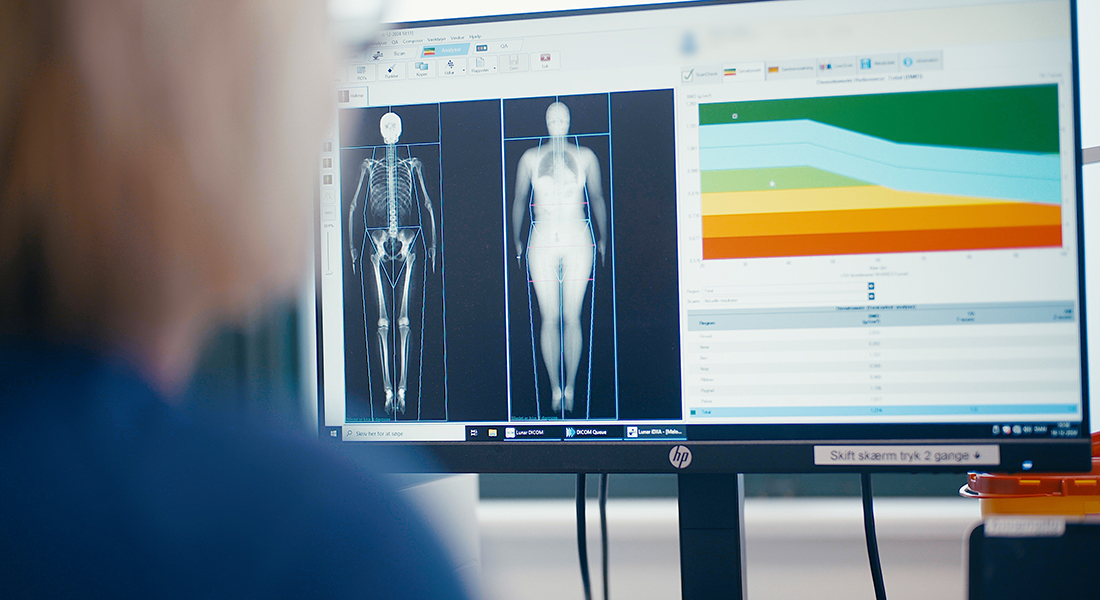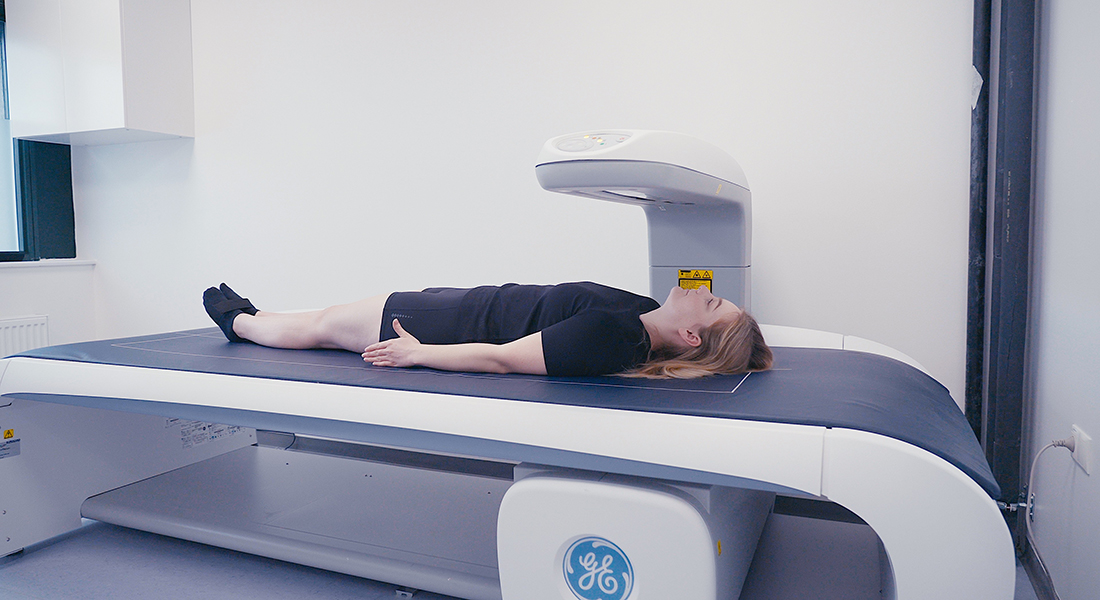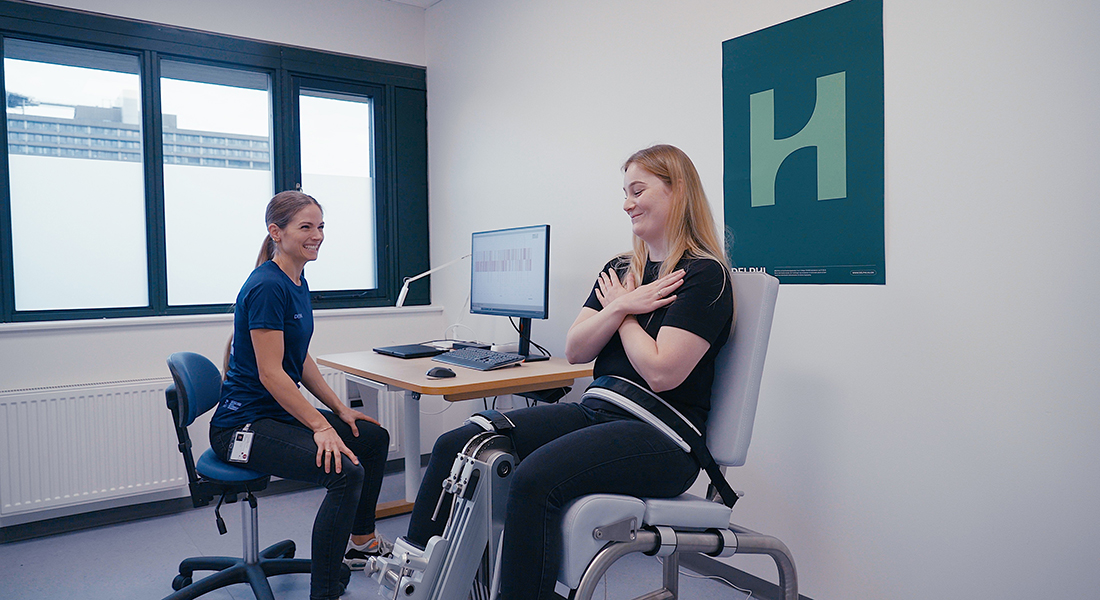Loos Group launches Denmark’s largest precision health cohort
Nearly half of all adults in Denmark are affected by obesity, diabetes, or cardiovascular disease. Yet, there remains a significant gap in understanding the individual factors that contribute to the development of these conditions. Today marks the launch of Denmark’s most ambitious cohort to date - an initiative designed to address this very challenge. The DELPHI study at the University of Copenhagen will follow 10,000 participants for up to 25 years and is the first study to collect and analyze such a comprehensive range of individual health data from everyday life.

The study leverages cutting-edge technologies to collect and analyze health data. Participants receive a 360-degree view of their health profiling through a comprehensive medical examination. This includes insights into how dietary habits influence blood sugar levels, whether environmental pollution impacts their well-being, and how factors such as sleep, stress, and physical activity affect overall health. These insights are gathered using the DELPHI app and wearables.
Individuals aged 20 to 65 are invited to participate in the project via e-Boks or can sign up via the website.
The project, known as DELPHI, which is short for the Danish Precision Health Initiative, aims to deepen our understanding of how physical health, mental well-being, and everyday environmental factors interact in the development of obesity, type 2 diabetes, and cardiovascular diseases. While today’s healthcare system mainly follows a one-size-fits-all approach, DELPHI seeks to challenge this approach. The goal is to pave the way for a future healthcare system able to predict, diagnose, and treat diseases with greater precision and personalization.

Denmark’s Most Ambitious Cohort
DELPHI builds on the research of Professor Ruth Loos, an international expert in the genetics of cardiometabolic disease and Principal Investigator of the project.
“We treat everyone with obesity and diabetes the same way, but we now know that there are many variations to these diseases. For example, people develop diseases for many different reasons, based on factors like genetics and the environment. My hope is that in the future we can personalise our treatments and prevention strategies to individuals, and their unique set of circumstances,” says Professor Ruth Loos from CBMR at the University of Copenhagen.
This project is a long-term cohort that collects data from the same individuals over several years to examine how various risk factors impact their health. The cost of such studies increases with the number of participants, the depth of data gathered, and the duration of follow-up. As a result, most cohorts compromise one or more of these factors.
What sets DELPHI apart from previous population studies is the depth and scope of data collected from each participant, along with repeated measurements over a 25-year period involving 10,000 adults.
“DELPHI will provide entirely new insights which will allow us to better predict, diagnose and treat obesity, diabetes, and cardiovascular conditions as they arise. This approach is known as ‘Precision Health.’ We are using innovative technologies to explore crucial, yet often hard-to-measure, factors that influence people's daily lives. Ultimately, this will benefit both individual patients and public health in Denmark”, says Karina Husted, Lead of the Danish Precision Health Initiative, NNF Center for Basic Metabolic Research (CBMR), University of Copenhagen.
By analyzing health data from 10,000 participants, researchers will have the opportunity to uncover previously unknown connections between our biology, lifestyle, the environment and the diseases that often arise later in life.
"Precision Health is about prevention and treatment being tailored to the individual, which will become a cornerstone of the future healthcare system. There are great perspectives in the DELPHI study - also outside Denmark's borders, and in the next 25 years we will gain many important insights based on the study", says Bente Merete Stallknecht, Dean at the Faculty of Health and Medical Sciences, University of Copenhagen.

Future Research in Health
Project DELPHI is an ambitious initiative involving numerous stakeholders, all dedicated to improving the healthcare system of the future. The project incorporates the latest techniques and spans multiple research paradigms, ensuring the generation of groundbreaking data that will provide new insights both today and for future researchers. Ultimately, this work aims to advance the prevention and treatment of cardiometabolic diseases, benefiting public health.
Contact:
The DELPHI Project: Project leader, Karina Husted, PhD, M.Sc., NNF Center for Basic Metabolic Research, University of Copenhagen. karinalu@sund.ku.dk
Principal Investigator Professor Ruth Loos, NNF Center for Basic Metabolic Research, University of Copenhagen. ruth.loos@sund.ku.dk
Go to website: DELPHI: Om os
About the DELPHI Project
Participants: 10,000
Duration: 25 years
Tests: Participants will be invited for in-clinic visits and continuous health profiling every second year (if aged 40-65 years) or every fifth year (if aged 20-40 years).
Official title: The Danish Precision Health Initiative
Facts about Cardiometabolic Diseases in Denmark:
- 670,000 citizens live with cardiovascular diseases (Source: hjerteforeningen.dk)
- 365,000 individuals are affected by diabetes (Source: diabetestal.nu)
- 53% of the population is living with moderate or severe obesity (Source: The National Health Profile 2023)
Purpose
The Danish Precision Health Initiative aims to understand how people go from being healthy to developing conditions like obesity, diabetes, and heart disease. By following people over time and collecting different types of health data, we can learn more about how these diseases develop and evolve. This will help us group people more accurately based on their health patterns, which is important for improving and personalizing medical treatment.
Precision health
In short, the goal of precision health is to improve individual health by considering the complex interaction between biology, environment, lifestyle and genetics. It recognizes that each person is unique, and therefore prevention and treatment strategies must be tailored to the individual.
The tests
During the in-clinic visit, participants will undergo comprehensive phenotyping, including measurements of anthropometrics, cardiovascular health, vision, lung function, strength, and cardiorespiratory fitness. Clinical questionnaires will gather information on medical history, lifestyle, social factors, and demographics. Participants will receive training and all necessary materials for continuous health profiling during the 10-days at-home monitoring period.
Following the baseline deep-phenotyping assessment, participants will wear a smartwatch and physical activity tracker to monitor various parameters, such as physical activity, heart rate, sleep, stress, and physical fitness. They will also wear a continuous glucose monitor to track interstitial glucose levels and a wristband to assess exposure to air pollution.

The Team
-
Ruth Loos
PhD, Principal Investigator
Ruth is the principal investigator of the DELPHI and has extensive experience in designing large-scale population studies and implementing cutting-edge phenotyping approaches. Her research focuses on the etiology of obesity. By identifying genes, her group aims to gain insight into the biology that underlies body weight regulation and the mechanisms that link adiposity to its comorbidities.
-
Karina Husted
PhD, Co-Investigator
Karina serves as a Co-Investigator in the DELPHI and leads the DELPHI team. She oversees critical aspects of the study to ensure effective implementation of the study protocol and quality of data as well as a positive participant experience. She is a human physiologist with expertise in biomedical research focusing on biological age, obesity and weight loss interventions.
-
Jordi Merino
PhD, Co-Investigator
Jordi serves as a Co-Investigator in the DELPHI with a particular focus on the project's behavioral and environmental assessment component. He is an associate professor at CBMR and a molecular epidemiologist who investigates how genes and lifestyle factors interact to influence the development of diabetes and its complications.
-
Kristoffer Burgdorf
PhD, Co-Investigator
Kristoffer serves as a Co-Investigator in the DELPHI with a particular focus on the ethical aspects, research collaborations and secure storage of data. He is a biologist and expert in human genetics and biobanks. Kristoffer has built large cohorts with the primary goal of creating the best possible conditions for research.

Funding and Research Partnerships
The study is initiated by Professor Ruth Loos (PI) and funded by the Novo Nordisk Foundation Center for Basic Metabolic Research (CBMR), University of Copenhagen. Dr. Loos received funding from the Danish National Research Fund to support the pilot phase of the study. In addition, Dr. Loos has been awarded a Novo Nordisk Foundation Laureate. The processing and storage of biological samples are carried out in collaboration with the Danish National Biobank at the Statens Serum Institut.
The tests will be carried out at: University of Copenhagen, Faculty of Health and Medical Sciences, Panum, Nørre Alle 20, 2200 Copenhagen.
Governance
The DELPHI Project has been approved by the Scientific Ethics Committees, and all data is stored in a secure database and handled confidentially in compliance with the Data Protection Act and the General Data Protection Regulation.
